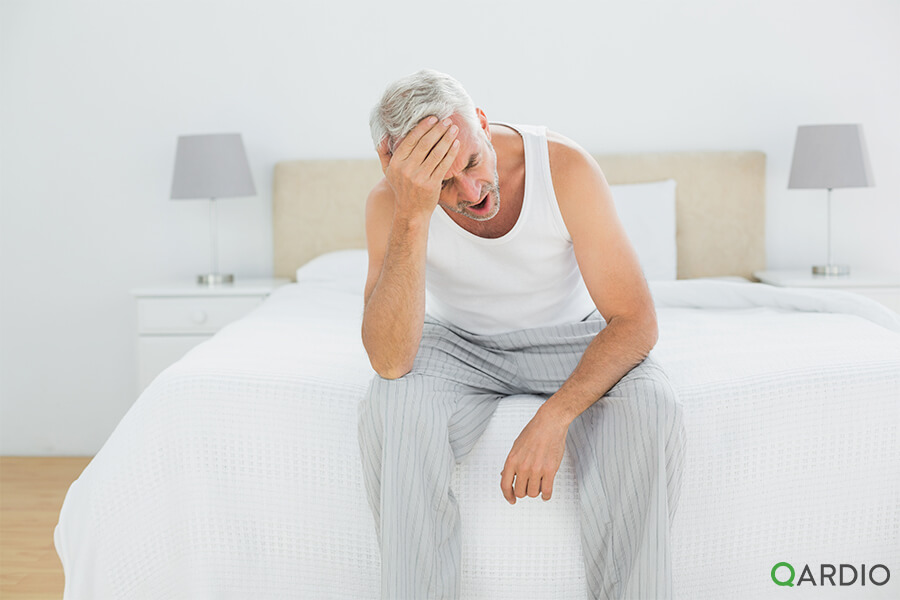Americans are stressed out, and it is only getting worse.
According to a 2018 survey by the American Psychological Association, not only are we stressed about home and work, but also the political climate and the future of our countries.
Results of this survey show that younger age brackets experience higher stress levels than older ones, with Generation Z and Millennials experiencing the highest amount of stress. Millennials reported the highest level of stress at 5.7 out of 10, whereas older adults reported an average stress level of only 3.3.
Given that younger generations are the future, this rise of stress must be addressed and paid proper attention, as a number of emotional, psychological, and physical problems arise when this stress leads to sleep deprivation.
Since one-third of US adults are sleep deprived and the stress that is one of the causes of sleep deprivation is also on the rise, we must be aware of the impact of stress and sleep deprivation, particularly on heart health.
How stress is a major cause of sleep deprivation leading to heart disease
Understanding how stress and sleep are connected is fundamental for addressing the problem and learning how to manage stress in a way that improves your quality of sleep.
Stress is generally defined as how your body experiences, reacts and handles external pressures, whether they are mental or physical. There is good stress and bad stress. Continuous or prolonged stress over time is bad, aggravating your nervous system and having a negative impact on your overall health and quality of sleep.
In addition to causing sleep deprivation and insomnia, incessant stress elevates your blood pressure, straining your heart and circulatory system. Constantly holding your breath or experiencing hyperventilation can cause significant breathing problems over time. Stress causes your heart to beat faster and for your blood pressure to elevate for long periods of time, which can be dangerous.
Why is this dangerous?
Good sleep empowers you to combat daily stressors. When you lack sleep, you are more likely to be irritable and less patient.
Sleep is a time of replenishment and restoration for your mind, which arms you with the resources to navigate external sources of stress both short-term and long-term. Without seven to nine hours of sleep, you are leaving yourself vulnerable to external factors that are difficult to manage and navigate without fully recharging your mind during sleep. When you don’t sleep enough, your body produces more stress hormones, as the brain chemicals that cause deep sleep also stop the production of stress hormones. This cycle of exhaustion continues night after night leads to a downward spiral of increased stress and increased chance of heart disease.
According to Harvard Medical School, short-term sleep deprivation has been shown in research to correlate with risk factors for heart disease, including higher levels of cholesterol, triglycerides, and blood pressure.
The National Institutes for Health states that poor sleep quality can lead to high blood pressure and heart disease, among other serious conditions. Evidence leads to the concept that you must sleep well to have a healthy heart.
Regardless of age, weight, or if you are a smoker, good sleep is still essential to help avoid the risk of cardiovascular disease and coronary heart disease.
Tips on Decreasing Stress & Getting Better Sleep
– Go to bed only when you are sleepy. If you can’t sleep, leave your bed until you know you are ready to sleep. You want your bed to be associated with sleep only and not the tension of unsuccessfully trying to sleep.
– Try relaxing 1 to 2 hours before bedtime. It is important to decrease stimulation as much as possible. Dim the lights and focus on something that you personally find relaxing.
– Stop drinking caffeine by noon every day. In fact, if you are really having trouble sleeping, consider going off of caffeine for an entire month, and see what happens. Be mindful of the caffeine levels in chocolate and tea as well.
– Set a time at which you go to sleep every night and stick with it. Having a regular bedtime and wake up time make a significant impact on your body’s ability to regulate its circadian rhythm.
– Consider at least one 15-minute relaxation break during your day. Use this break to keep your mind and body in balance and consider taking more than one if possible.
Guest post by Ashley Little.
Ashley is a writer for Mattress Advisor, a site that focuses on helping others achieve their best night’s sleep each night.


